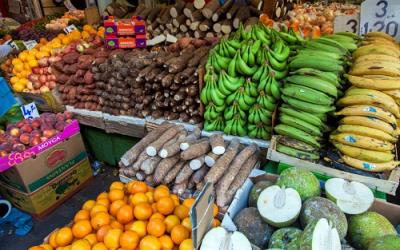A crate of eggs, one of my go-to compliments for any food recipe is now sold for 45 cedis, a 40% increase from how much it sold three months ago.
I don’t prefer reusing my vegetable oils, but my options are limited at this point. Our nation is currently experiencing a full-blown economic recession.
World Bank in its latest update stated almost all low-income and middle-income countries between May to September 2022 reported high inflation. The world has eight years remaining to attain targets 1, 2, and 3 of Sustainable Development Goal 12 (SDG).
FAO describes it better when it says “the world is moving backward” in its efforts to combat food insecurity in all its forms considering the recent food crisis. Were our many policies and strategies (naming them will require additional sheets) toward sustainable food supply by IFAD, ICIPE, WFP, WHO, etcetera, and our national policies relevant enough? The current test of food crises makes me want to answer “NO”.
Accelerated action is urgently needed towards food loss and food waste. These two are essential to fighting hunger, increasing income, and improving food security. Even though food loss and food waste are sometimes used interchangeably, these two focus on distinct aspects of the issue.
While food waste is the deliberate tossing of food that is still fit for human consumption, food loss refers to the unintentional reduction in the amount as well as the quality of produce before consumption. Estimates show that Ghana loses 66% of its annual production of fruits and vegetables, 40% of its root crops, and 21% of its cereals.
If this isn’t alarming enough, I do not know what else is!
The less food available in our homes, the fewer smallholder farmers, and local producers, who make up the backbone of the sector, earn. It is also detrimental to the environment and the depletion of natural resources.
Food loss and food waste destabilize the viability of our food system because, when these losses are considered, all other resources including water, land, energy, labour, and capital amount to nothing. Concentrating on implementing integrated strategies intended to decrease food loss and waste is necessary. Global and local action is needed to make the most of the food we produce.
The question remains, how can we prevent food loss and food waste?
Implementing this radical transition will depend on introducing technologies, and creative solutions such as flexible mobile food processing systems, e-commerce platforms for marketing, new working habits and methods, and adapting best practices to monitor food quality and minimize food loss and waste.
The whole food production chain needs some reform. From agricultural production, postharvest handling and storage, industrial and domestic processing, distribution through our market systems, and consumption, let’s begin the conversation and put in the work.
The chance to mobilize the public, local governments or national and private sector, industries, and individuals to prioritize strategies and advance with an invention to lessen food loss and food waste toward establishing and building back healthier and resilient-ready food production and processing systems is the way to go.
In my capacity as a researcher with an interest in sustainable food production and processing technologies, I would like to emphasize the importance of focusing future research on an evidence- based analysis of the impact of food loss and waste on food security, influenced by high-quality and readily accessible data to influence policies, investments, and technical interventions.
To the consumer: only purchase what you will eat, choose ugly fruits and veggies if they are still healthy, store carefully, make the most of your leftovers, be creative with your recipes, support local food producers, and always remember sharing is caring.
This article was written by, Ing. Nana Yaa Serwaah Sarpong, PE-GHIE -Researcher, Sustainable Food Production and Processing Technologies Lecturer, Cape Coast Technical University
Latest Stories
-
DAMC, Free Food Company, to distribute 10,000 packs of food to street kids
22 minutes -
Kwame Boafo Akuffo: Court ruling on re-collation flawed
41 minutes -
Samuel Yaw Adusei: The strategist behind NDC’s electoral security in Ashanti region
43 minutes -
I’m confident posterity will judge my performance well – Akufo-Addo
55 minutes -
Syria’s minorities seek security as country charts new future
2 hours -
Prof. Nana Aba Appiah Amfo re-appointed as Vice-Chancellor of the University of Ghana
2 hours -
German police probe market attack security and warnings
2 hours -
Grief and anger in Magdeburg after Christmas market attack
2 hours -
Baltasar Coin becomes first Ghanaian meme coin to hit DEX Screener at $100K market cap
3 hours -
EC blames re-collation of disputed results on widespread lawlessness by party supporters
3 hours -
Top 20 Ghanaian songs released in 2024
3 hours -
Beating Messi’s Inter Miami to MLS Cup feels amazing – Joseph Paintsil
3 hours -
NDC administration will reverse all ‘last-minute’ gov’t employee promotions – Asiedu Nketiah
4 hours -
Kudus sights ‘authority and kingship’ for elephant stool celebration
4 hours -
We’ll embrace cutting-edge technologies to address emerging healthcare needs – Prof. Antwi-Kusi
4 hours

